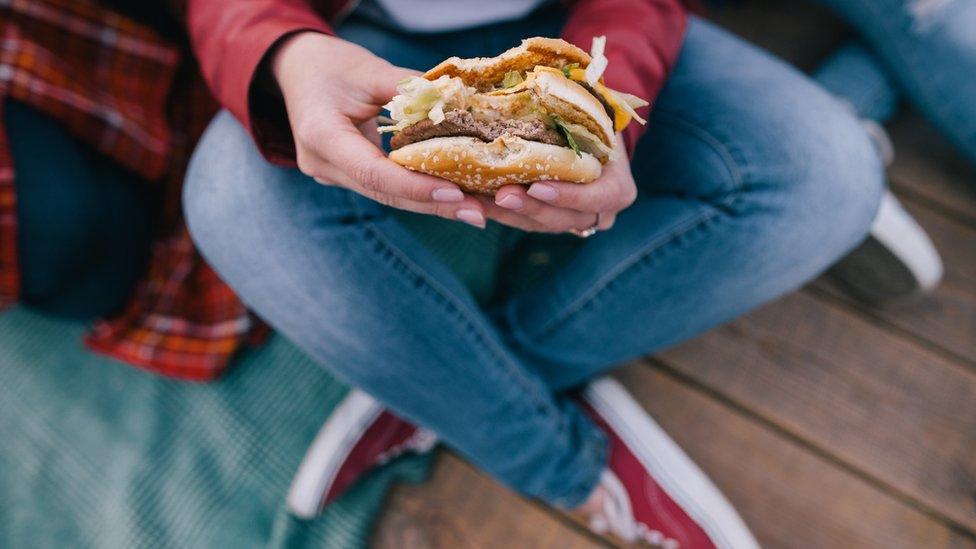TikTok: Why it's good we're chatting British Chinese food
- Published
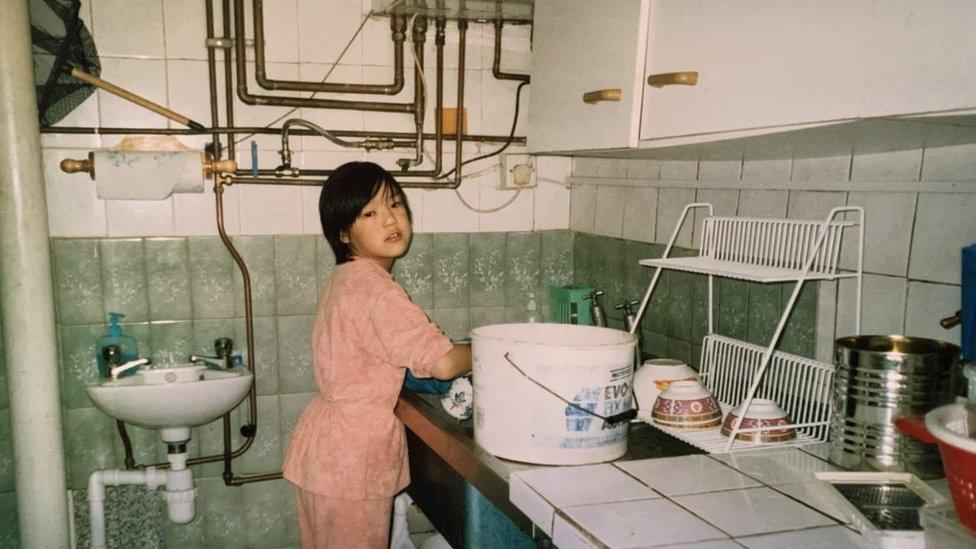
Angela Hui often helped out in the takeaway as a child, along with her brothers
British Chinese takeaway food has split opinion online, after a viral TikTok video from an Asian American.
Soogia addressed British TikTokers' trend of "unboxing" their takeaway, and singled out dishes she did not recognise as Chinese food.
On some Brits calling it "a Chinese" @soogia1 said in her video, external : "I know it's not intended to be racist, but it just kind of feels a little bit racist."
Angela Hui, who grew up above a Chinese takeaway in the south Wales valleys, called the debate funny, but was happy to see the cuisine gain worldwide attention.
With such takeaways declining in number, she was glad to see people discussing their distinctive food.
"It's its own unique thing," Angela said. "It's not trying to be anything else."
What followed the video was a flurry of responses discussing the differences between British and American Chinese food, with many Americans bemused at the distinctive nature of the British version.
But, as Angela explained, there is a reason the food her parents once cooked is so unique.
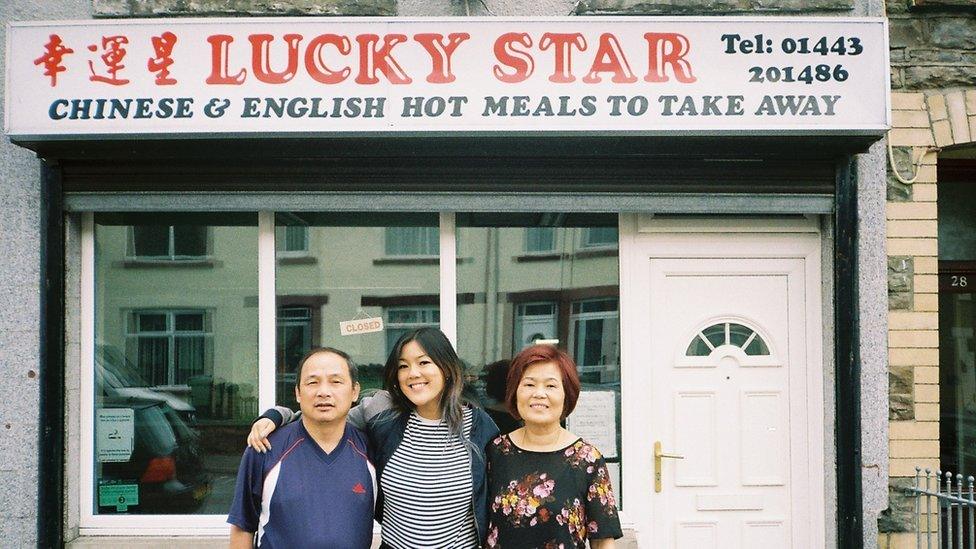
Angela's parents set up their family business in the 1980s in south Wales, after moving from Hong Kong
"British Chinese takeaways sprang up after the war, post 1950s and 60s," she said.
"Many of them took over Jewish fish and chip shops, and Indian takeaways were very popular at the time."
The 32-year-old said this resulted in a "mishmash" of ingredients and dishes: "There was a lot of borrowing, adapting and using what was available at the time. Back then a lot of ingredients weren't as readily available as they are now."
Dishes like chicken balls, chips and curry sauce therefore became commonplace on Chinese takeaway menus, along with vegetables that were able to be grown in the UK.
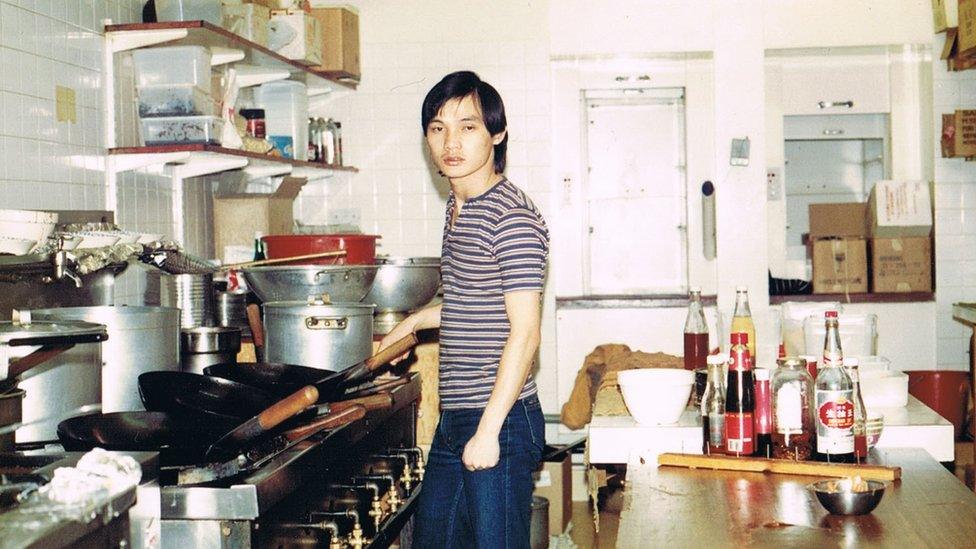
Immigrants like Angela's parents had to adapt their food depending what ingredients were readily available, she says
Angela's parents set up the Lucky Star Chinese takeaway in Beddau, Rhondda Cynon Taf, in 1988 after moving from Hong Kong a few years earlier. She wrote a book about her childhood experiences.
Like many others, they grew their own bean sprouts and used "hardier vegetables" like onions and green peppers in their cooking.
Angela also pointed out that the lack of space in the UK compared to the US means British Chinese takeaways are often set up in smaller areas. While this means "less elaborate dishes" can be found on the menus, the chefs have worked just as hard.
"I feel like takeaways get a lot of hate because it's considered fast and dirty," she said. "I think people are forgetting that there's people behind the food. There's a lot of hard work that goes into it."
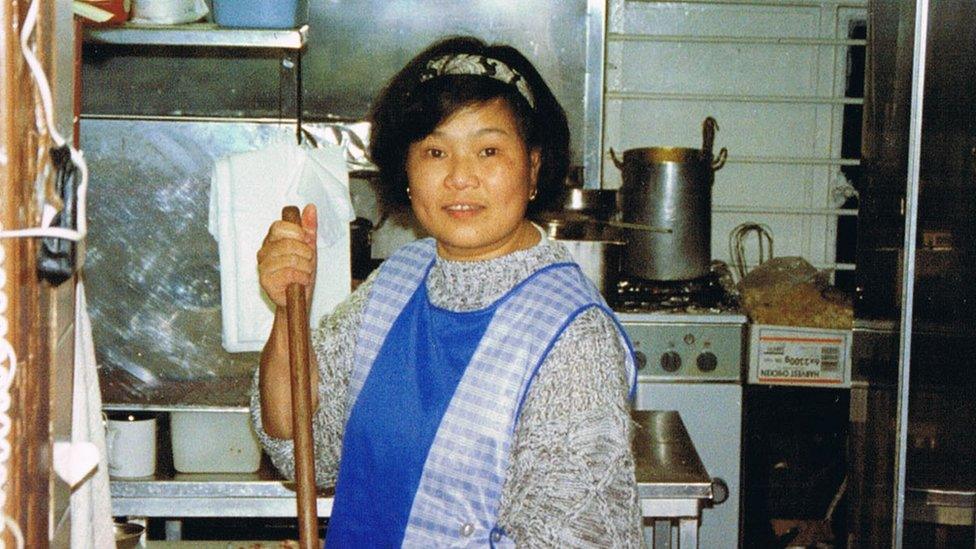
Angela says her parents would work long days seven days a week to provide for the family
Asked about the shortening of Chinese takeaway to simply "a Chinese", which some Americans found strange, Angela does not find it offensive.
"It's the same kind of line as how we would say 'going for a cheeky Nando's' or 'going for an Italian'. It's just slang, a very UK thing."
Charley Anne, from Barry, Vale of Glamorgan, often films herself dishing out takeaways and posts the videos on TikTok. Her Chinese takeaway - with chicken balls, salt and pepper chips and curry sauce - was one of the ones to confuse Soogia and other Americans.
She said the worldwide attention on her Chinese takeaway video, external had been quite shocking: "It's all just a bit crazy. It's got me a lot of followers - I think I gained about 40k from it."
She agreed with Angela that the term "a Chinese" was nothing more than British slang.
"A lot of people were saying it's a racist thing to say Chinese, but obviously it's not. It's just what we say in the UK.
'Ours is delicious'
"But the whole of the UK had my back, so that made me feel better," Charley said, pointing out how many people responded to Soogia's video explaining why British people were inclined to shorten their language.
She also thinks we should celebrate the unique nature of British Chinese food.
"[Americans] have got completely different dishes," she said. "They were saying our Chinese looks gross, but I'm thinking 'you've never actually tried it'. Our Chinese is delicious."
For Angela, the attention TikTok has brought to British Chinese cuisine is positive.
"Chinese takeaways are declining," she said, explaining how factors like Covid-19, the cost of living and first-generation immigrants getting older were forcing a lot of hospitality businesses like Chinese takeaways off the market.
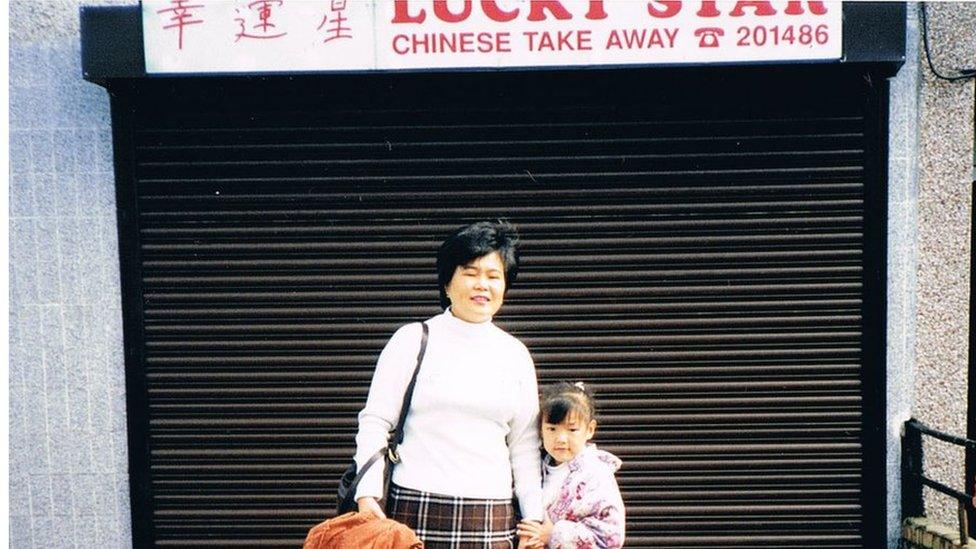
Angela thinks the debate on TikTok is good, because it has brought attention to the "hardworking families" behind British Chinese takeaways
"A really beautiful thing that a lot of people don't realise is [Chinese takeaway food] is its own unique thing," she added. "It's not trying to be anything else."
Due to this uniqueness, Angela said she found the argument about which Chinese cuisine is better - UK or US - funny, as it ignores the history, people and context behind what ends up on takeaway restaurant menus.
"It's a good thing that more people are becoming more receptive to knowing more about Chinese takeaways, learning more about the history and getting to know the hardworking families behind them. It's just nice that people are still supportive after all these years.
"There's nothing wrong with British Chinese food," she said. "I think people should appreciate it for what it is."
Related topics
- Published30 July 2022
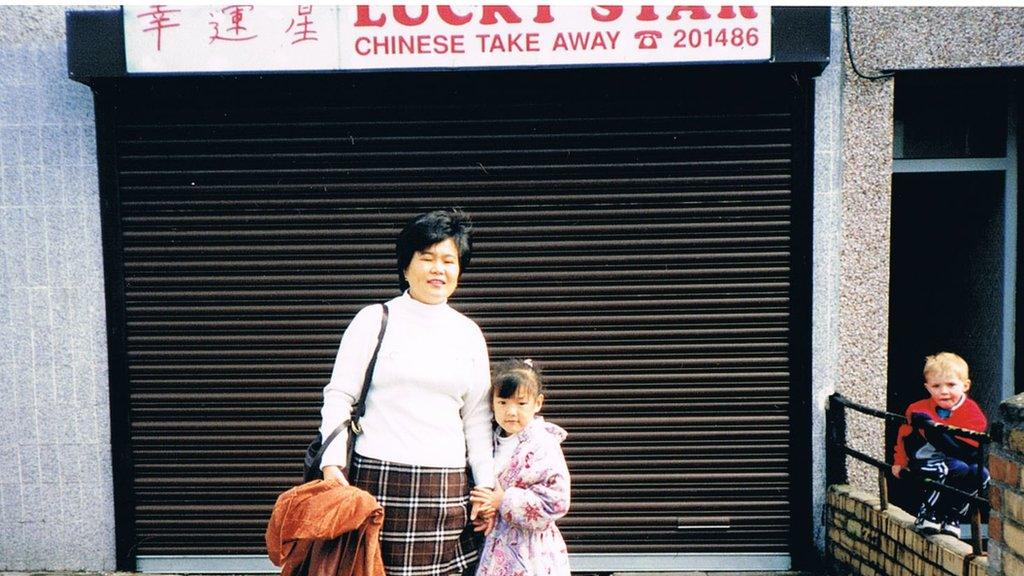
- Published7 November 2022
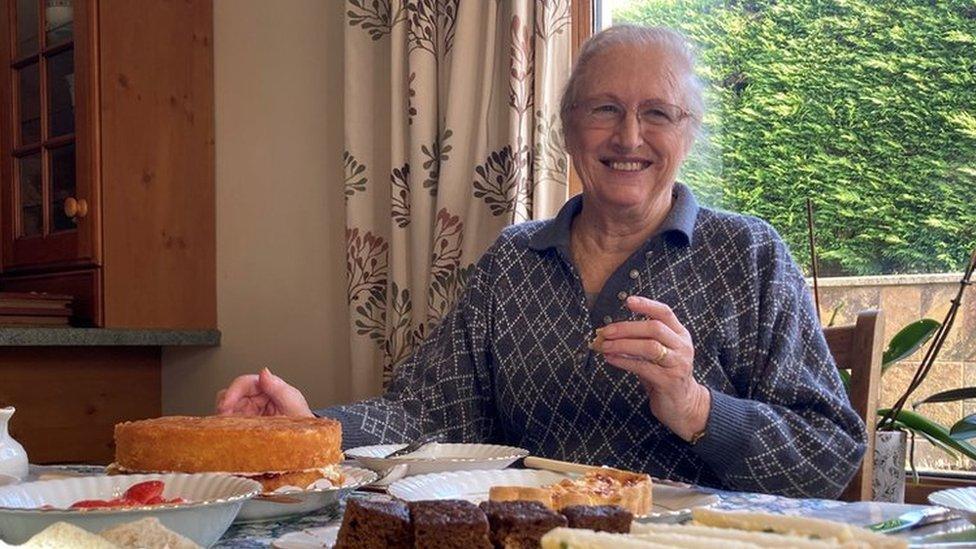
- Published23 October 2018
